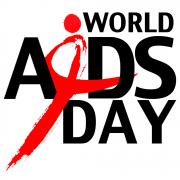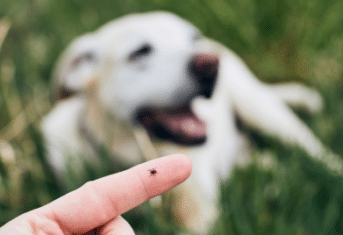World AIDS Day 2013: Pet Ownership and AIDS Patients

World AIDS Day 2013: Pet Ownership and AIDS Patients
This Sunday, December 1 is World AIDS Day. This special day is an opportunity for people worldwide to unite in the fight against HIV, show their support for people living with HIV and to commemorate people who have died from the disease. World AIDS Day became the first ever global health day, with the first one held in 1988. Since we at The AMC are all about pets, today’s blog focuses on pet ownership for immunocompromised individuals such as AIDS patients.
Pets are “pawsitive”
AIDS patients and indeed all immunocompromised patients are at greater risk for acquiring infections from their pets. Yet, many believe the positive benefits of pet ownership outweigh the risks of infection. The health benefits of pet ownership are well known. People with pets exercise more, especially those with dogs. Pets lower your blood pressure and speed recovery from cardiovascular disease. Pets also increase human social interactions and decrease feelings of isolation in pet owners.
In a 2008 article, Dr. Russell Steele, a specialist in infectious diseases at the Ochsner Clinic in New Orleans, asks and answers the question “Should immunocompromised patients have pets?” Since his answer to the question is yes, Dr. Steele recommends a two pronged approach to pet ownership for immunocompromised individuals:
- Careful selection of the pet
- Frequent health monitoring of pets
Pet selection
- Choose an adult pet with a known health history. Puppies, kittens and pets without any health information are more likely to pose a risk for infectious diseases such as Campylobacter diarrhea or bite injuries.
- Select an indoor pet. Indoor pets have less exposure to wild animals and other sources of infectious diseases.
- Choose a cat that tests negative for feline leukemia virus and feline immunodeficiency virus. Since these are the feline versions of AIDS, infected cats may harbor infections which can be transmitted to humans.
- Avoid pet birds, reptiles and rodents. These make wonderful pets for some, but the diseases they can transmit to immunocompromised patients cannot be prevented by vaccination like many of the diseases transmitted by dogs and cats.
Healthcare and monitoring
- Tell your veterinarian about your immunocompromised status. Details are not important. Just knowing a patient is immunocompromised is enough for me to better manage your pet’s healthcare.
- If your pet is not neutered, talk to your veterinarian about neutering. Neutered pets are less likely to roam and bring home infectious diseases.
- Have your pet examined by a veterinarian at least once a year.
- Follow your veterinarian’s recommendation regarding vaccinations and fecal analysis.
- Ask about preventive medications to keep yourself and your pet free from diseases transmitted by fleas and ticks.
- Feed a cooked diet. Raw pet food may contain microorganisms which can make you and your pet sick.
For more information about keeping yourself healthy if you have a pet, read the Centers for Disease Control’s FAQ on pets and HIV/AIDS. Note the first line of this document says “You do not have to give up your pet.”































